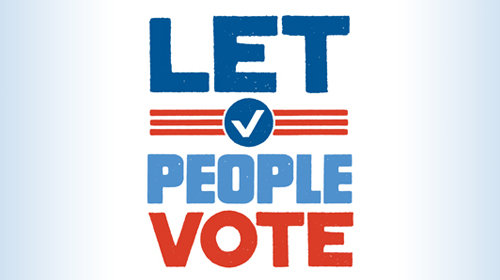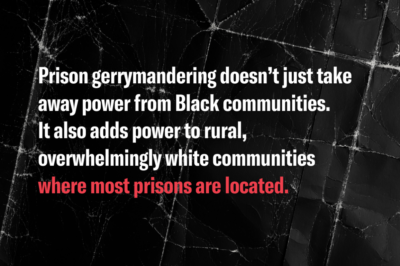
Six years ago, Desmond Meade stood along a set of railroad tracks and considered jumping in front of an oncoming train. Homeless, unemployed and recently released from prison, Desmond felt out of options, and couldn’t imagine a future for himself. Thankfully, Desmond did not end his life that day, but instead, incredibly, found the courage to turn it around completely. Today, he is a second-year law student at Florida International University College of Law and president of the Florida Rights Restoration Coalition.
Desmond not only survived that dark period, but he drew on his experiences to help others. He now advocates on behalf of other formerly incarcerated individuals who, like him, have been stripped of the right to vote even though they have changed their lives and are now living and working in their communities.
This week, Desmond is taking his message to Washington, D.C. where he will speak at a Congressional briefing about the Democracy Restoration Act. The DRA would give Desmond and others like him the chance to participate in the democratic process by restoring voting rights in federal elections to the approximately four million Americans who are no longer incarcerated, but are denied the right to vote because they once served criminal sentences. The law would establish a single, clear federal standard for restoration of rights, eliminating the confusing patchwork of state laws that currently apply in federal elections. It would also ensure that people who are convicted of misdemeanors or sentenced only to probation never lose their right to vote, as they do in some states now, and would put in place a procedure for notifying people of their rights when leaving prisons.
Setting a national standard for restoration of voting rights is particularly important for Desmond and his fellow Floridians, who live in one of the harshest states in the nation when it comes to disfranchisement. Along with Virginia, Iowa, and Kentucky, Florida disfranchises those with felony convictions permanently unless the citizen’s restoration of rights is individually approved by the state. In Florida, this requires approval from the Board of Executive Clemency, which includes the governor. Disappointingly, Florida made that process even harder last year when state authorities rolled back earlier gains made for those seeking to regain their rights.
The state’s permanent revocation of his fundamental right to the ballot box has caused Desmond to reflect on the journey that slaves once took to escape to freedom in other states. Like them, his rights depend on what side of a state line he resides in. Sadly, as ACLU Senior Legislative Counsel Deborah J. Vagins, a co-chair of the Democracy Restoration Act coalition, has written, many criminal disfranchisement laws are indeed rooted in the Jim Crow era and were intended to bar minorities from voting.
There’s no question that the impact of these laws is still being felt by Desmond and countless others. Nationwide, 13 percent of African-American men have lost the right to vote — a rate seven times the national average. Latino citizens, who also disproportionately over-represented in the criminal justice system, are also disproportionately disfranchised as a result. This doesn’t just hurt those who are disfranchised. It hurts their families by forcing their kids to grow up without ever seeing their parents vote and it hurts their entire communities by weakening their collective political voice.
The DRA would strike a blow against this injustice by helping to end that cycle. The bill is also championed by Rep. John Conyers (D-Mich.) in the House of Representatives and supported by a very broad range of organizations in the faith, law enforcement, and civil rights communities.
This Wednesday’s briefing is hosted by Sen. Ben Cardin (D-Md.), who introduced the bill in the Senate last year. Deborah will be speaking on the roots of these laws, their ongoing racially discriminatory impact, and the need for a federal congressional solution. Other speakers will include Carl Wicklund, Executive Director at the American Probation and Parole Association, Dave Louden, Assistant to the President at the Justice Fellowship, and Nicole Austin-Hillery, Director and Counsel of the Brennan Center for Justice Washington Office, who will serve as moderator.
You can help Desmond and millions of others like him today to regain their voices by urging your Members of Congress to support the Democracy Restoration Act. In a democracy, everyone deserves a voice.
CORRECTION: This post was clarified to explain that individuals who apply for rights restoration in Florida must receive approval from the Board of Executive Clemency, which includes the governor. A previous version of the blog stated that the governor approves restoration of rights.
Learn more about voting rights: Sign up for breaking news alerts, follow us on Twitter, and like us on Facebook.



